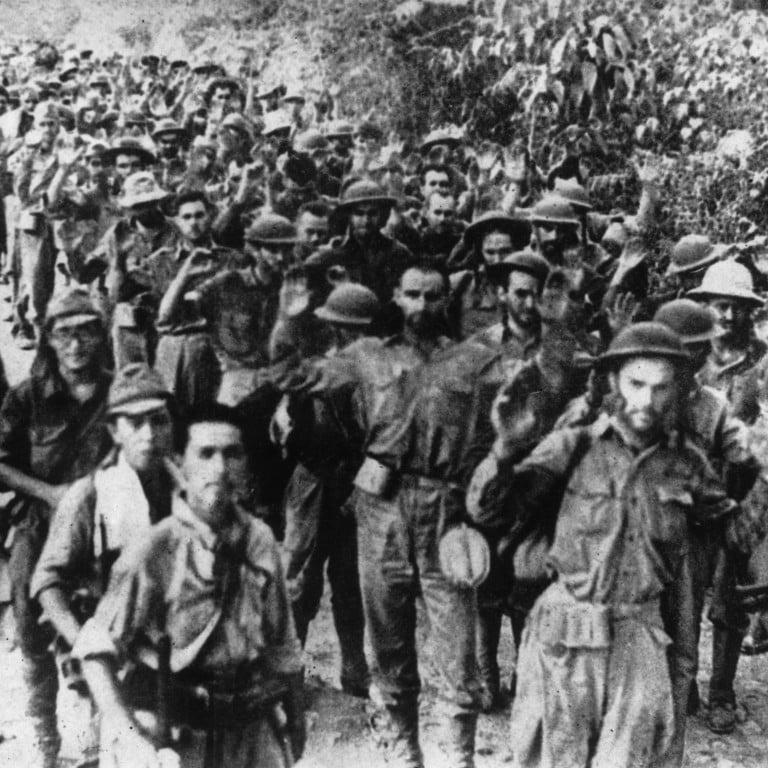
Families of British POWs ‘murdered at sea’ by Japan WWII military still seeking apology, answers
- Relatives of victims on the Suez Maru say they are horrified by the British government’s failure to prosecute the Japanese perpetrators involved in the shooting
- A petition sent to Downing Street asks for official acknowledgement of the cover-up and for failing to reveal the truth to victims’ families
More than 80 years after the sinking of the “hell ship” the Suez Maru off the coast of Java, Jacquelyn Frith-Crofts is demanding to know why one of the worst war crimes of World War II was not prosecuted and eventually covered up by successive British governments.
Frith-Crofts, whose great uncle Jack and hundreds of Allied prisoners of war aboard the ship were shot in the water by their Japanese captors, says she and other victims’ families are horrified by the British government’s decision shortly after the war to allow the Japanese perpetrators to go free despite having more than enough evidence for a war crimes trial.
Earlier this month, the archaeology research postgraduate at the University of Liverpool delivered a petition signed by 320 relatives of the dead men to Downing Street, the latest in a long series of approaches since 2002 demanding answers to the government’s handling of the conflict and failure to inform the victim’s families about the true fate of their loved ones.
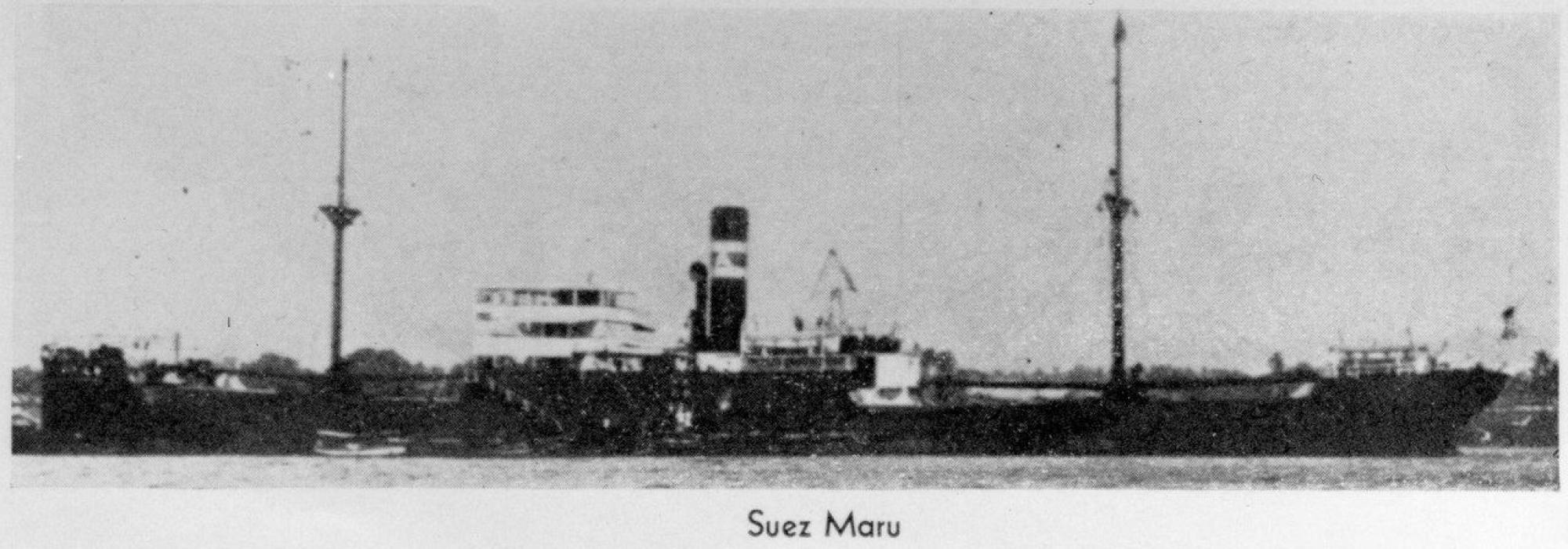
Dealing with the British government has been “frustrating”, Frith-Crofts tells This Week in Asia, as she waits for a response to her February 9 petition. Her great uncle Jack had been a gunner in the Royal Artillery until he was captured.
“There are many questions that have not been answered. Or even acknowledged,” she said.
Yet, the facts of the Suez Maru sinking are today not in doubt.
Launched in 1919, the Suez Maru was a 4,645-ton passenger-cargo ship that was requisitioned by the Japanese government at the outbreak of the war in the Pacific. On November 25, 1943, it took on 547 POWs from Ambon, in what is today Indonesia, bound for Surabaya in East Java.
The Suez Maru was one of many “hell ships”, a term that describes the vessels used by the Japanese military to transport POWs in extremely inhumane conditions during World War II.
The Suez Maru’s prisoners, including 414 Britons and 133 Dutch, were already weakened and ill after being used as slave labourers to build airstrips for the Japanese military. The ship did not carry identification as a hospital ship or POW transport, in defiance of the Geneva Convention, and was intercepted four days into its voyage by the USS Bonefish, a US Navy submarine.
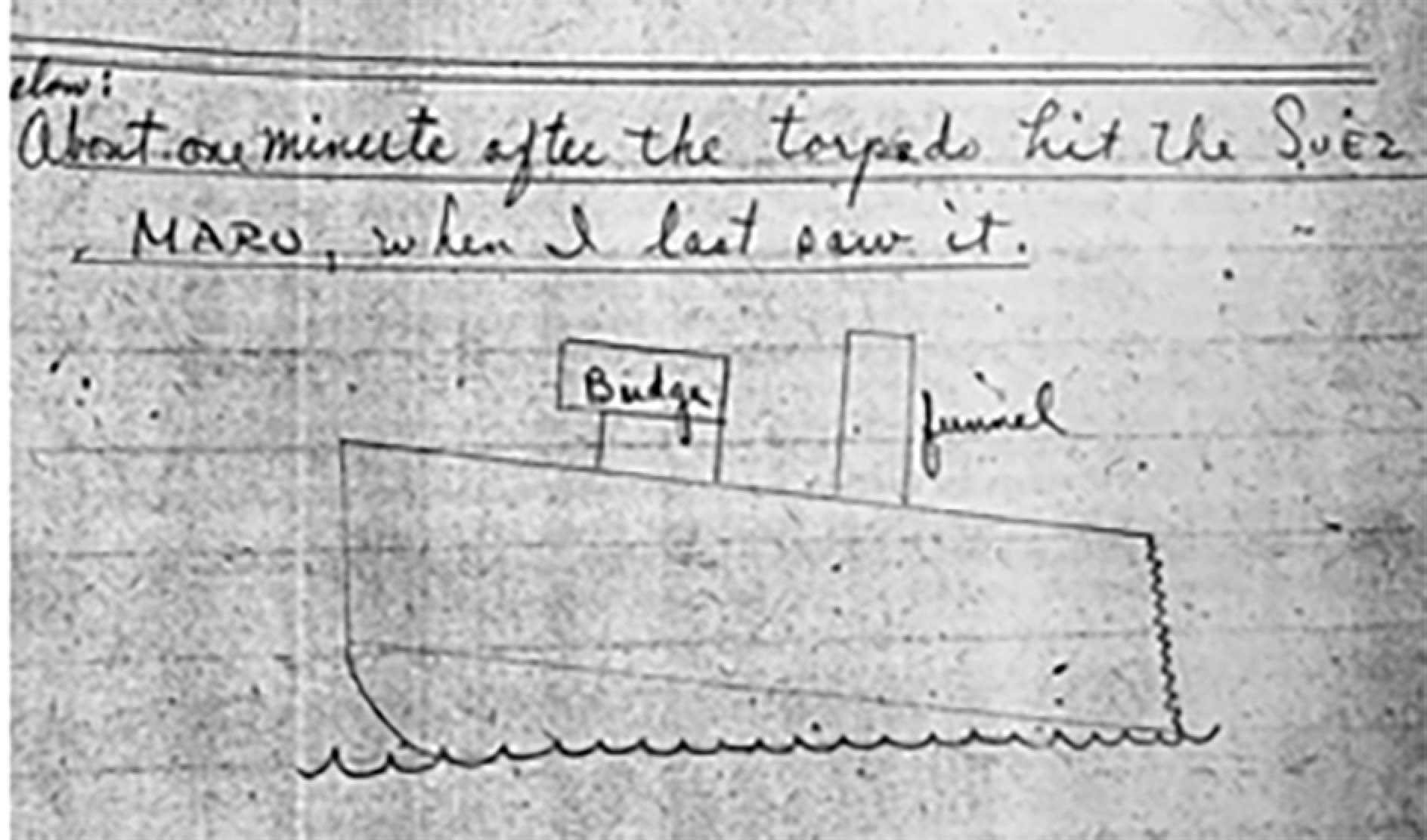
The Suez Maru was hit by two torpedoes and the men in the stern hold were killed immediately when it sank with the hatches bolted down. An estimated 250 prisoners survived the sinking, however, clinging to flotsam for several hours as they waited for the escort ship to pick them up.
After all the Japanese had been recovered, however, the Japanese commanders gave the order for all the POWs to be shot in the water.
In January 1944, news of the sinking and the loss of prisoners was reported to the British government via the International Red Cross and the families were informed.
They received no further details on the loss of the Suez Maru or the massacre until Allan Jones, the son of one of the men who died, uncovered documents in the National Archives of Australia in 2002.
The collection included original papers, produced by war crimes investigators in Tokyo shortly after Japan’s surrender, recommending that three main suspects – who had all been identified, questioned and were in custody – be tried for the Suez Maru killings.
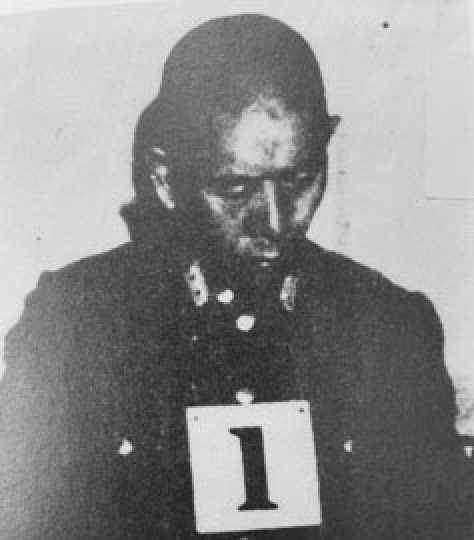
Papers dated October 1949, however, show then British Secretary of State for War Emanuel Shinwell and Foreign Secretary Ernest Bevin ruled out a trial.
“If we don’t cease these war crime trials, there could be equally bad cases come to light … and how shall we ever put an end to these trials?” Shinwell said. He added that a prosecution would “arouse great feeling in this country if it became known, as it involves so many Allied men murdered at sea”.
Jones wrote a book about the Suez Maru sinking and passed his research on to Frith-Crofts before his death in 2023. She has continued that work, publishing a book of her own, reaching out to the families of other victims and pressing for a response from the British government.
“I have asked for a simple twofold apology from the UK government,” she said. “The apology is, first, for failing to prosecute those responsible and, [second], for concealing the facts from the Suez Maru families.”
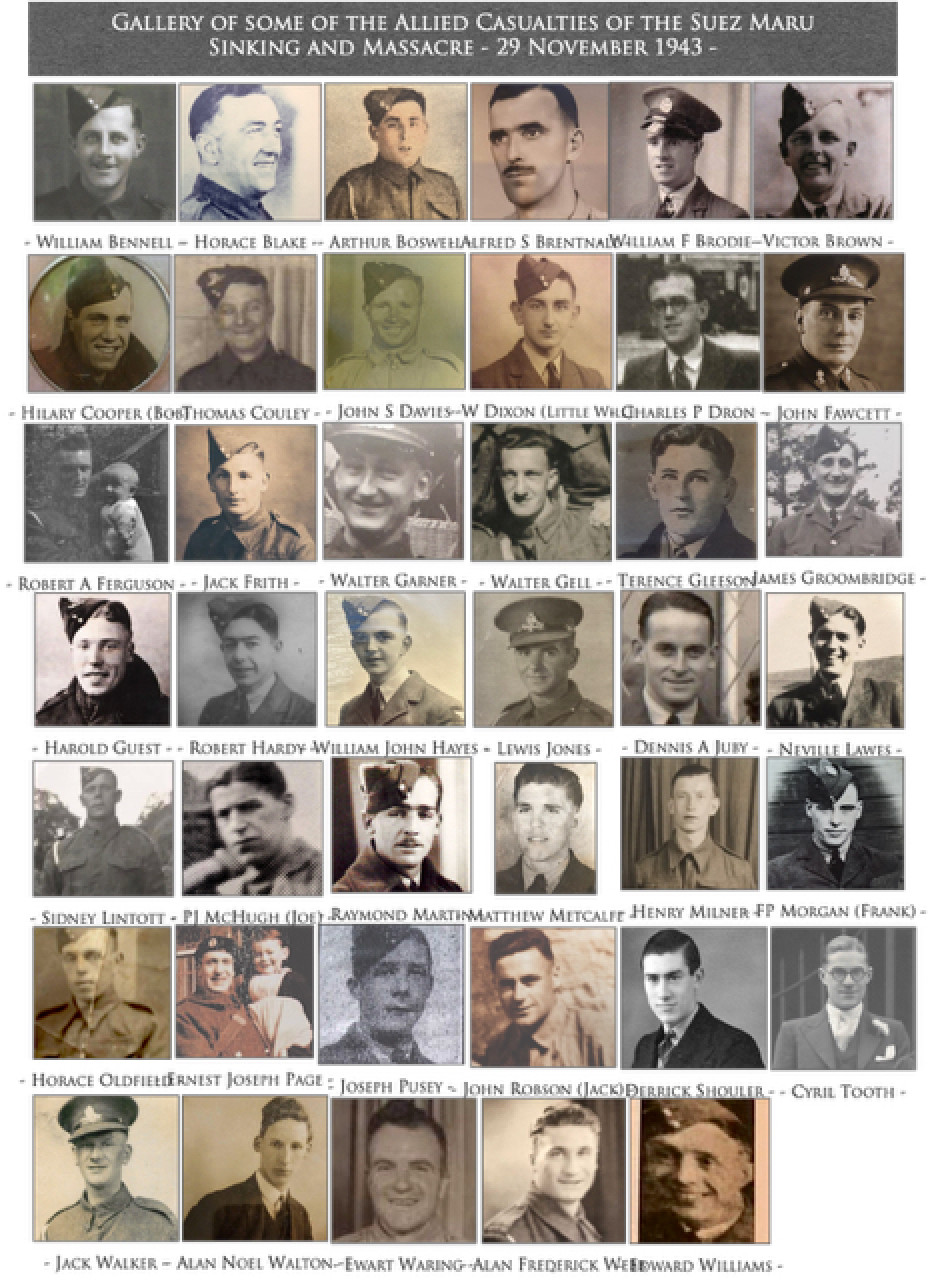
Frith-Crofts says hiding the truth is “a deliberate act” as the victims’ families were “not told anything of the investigation” conducted into the incident by war crimes investigators in Tokyo.
“Our families suffered for 80 years, not knowing anything further about the loss of our loved ones, parents not knowing the circumstances of the loss of their sons,” she added.
She denounced the 1949 decision as “cowardice of the highest order”.
“I simply could not think less of these politicians, who chose themselves and their political images over their moral duty to no less than 550 war heroes, for whom they would later be placing their Remembrance Sunday wreaths in front of news cameras and feigning grief over,” she said. “It is sickening.”
UK man’s diary unveils horrors of Japan internment camp
Frith-Crofts says, however, that she was surprised by the more compassionate reaction she received from representatives of the Japanese embassy in London, which she visited on the same day after delivering the petition to Downing Street.
Previous letters to the embassy and former prime ministers Shinzo Abe and Yoshihide Suga calling for more than expressions of “sorrow and regret” for the suffering of the POWs had been ignored, she said, but on this occasion an embassy official “really listened”.
“We spoke, I think, for maybe 20 or more minutes, as I outlined the story,” she said. “He simply listened. It was extraordinary, for me, as I think it seemed to be for him. No one, absolutely no one, of any government has just listened.”
The conversation “had not been at all confrontational”, Frith-Crofts said. “It seemed to me that he perhaps knew of wartime Japanese atrocities. He did not seem surprised, but he did not seem to know of the Suez Maru.
“However, he looked me in the eye, his hands clasped, and said, ‘I am so very sorry’ … For me, it was a significant moment. It was meant. It was genuine.”
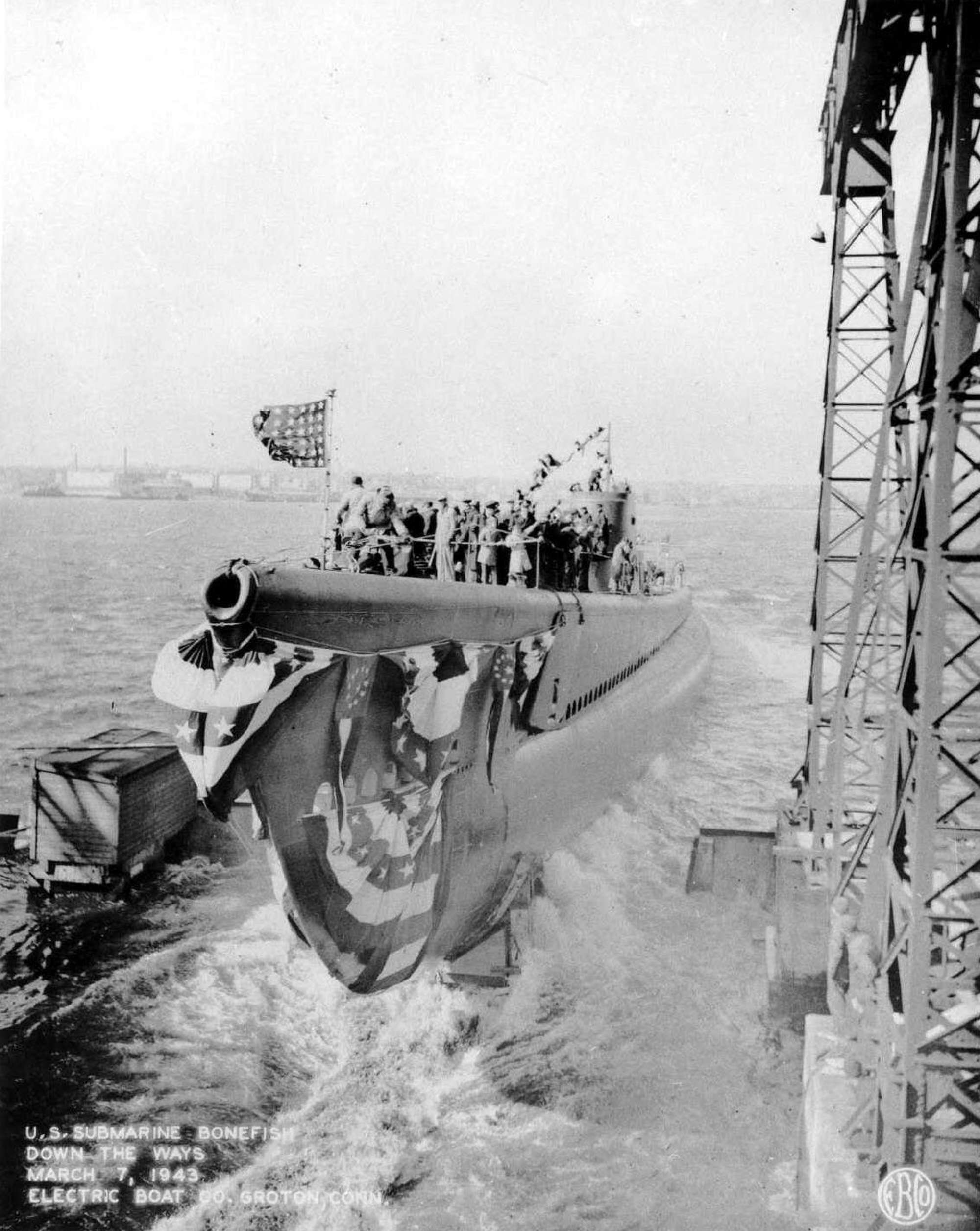
As well as a meaningful apology from the Japanese government, an acknowledgement that Japan was the aggressor in the war and that the mistreatment of POWs was deliberate and deplorable, Frith-Crofts requested that Tokyo specifically express “Japan’s deepest apologies” for the deaths of the prisoners aboard the Suez Maru.
She also asked that Japan recognise the bravery of Yoshio Kashiki, a wounded Japanese soldier who was being transported aboard the Suez Maru when it was sunk but was rescued by another Japanese ship and who subsequently witnessed the atrocity.
Kashiki was brave enough to come forward with the information that initially alerted the war crimes investigators in Tokyo. Even though his information was not eventually acted upon, it was thanks to his actions that the families discovered the truth, she pointed out.
She left documents about the case with the Japanese embassy to be passed on to Tokyo and broke down in tears after she left.
“It was overwhelming that this was the first person to offer an apology for the Suez Maru, ever,” she said of the embassy official. “This man had done more in 20 minutes than the UK government in the 20 years we have been asking for recognition, acknowledgement and an apology.”
Frith-Crofts has not yet received an official reply from the British government to the petition and vows to continue her campaign until she gets answers.

